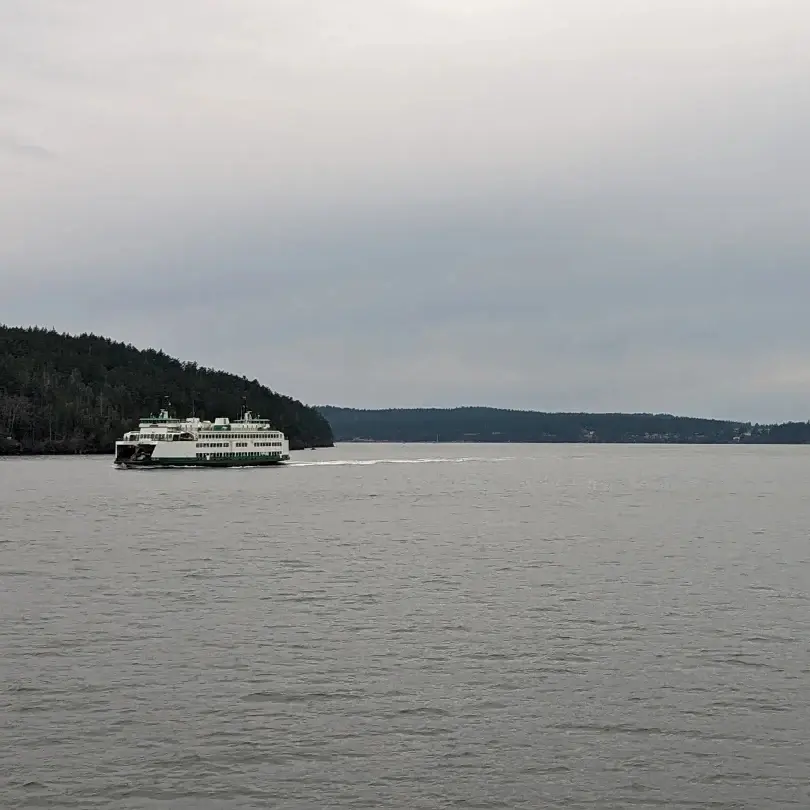
Legalize apartments.
Crosswalks are car infrastructure.
Build better cities.
https://www.theurbanist.org/about/former-boardmembers-staff-and-contributors/owen-pickford/
@ajsadauskas @heatofignition @mondoman712
Its an important distinction because people have a delusional perception of what's already available. Every city has a bus system. People can use 20 minute bus service! And I guarantee if middle class folks start riding those buses, the service will improve.
And additionally there are places that will never have transit. We can't hope people will eventually just stop living in rural areas and then after that, finally, we'll raise fuel taxes.
@ajsadauskas @heatofignition @mondoman712
Saying alternatives *need* to be in place *before* you can discourage car ownership is a lot different than asking policymakers to coordinate transportation changes.
@ajsadauskas @heatofignition @mondoman712
Right, it sounds like we're mostly on the same page. If you scroll back up and read my original reply, I'm pushing back on multiple people communicating a hard line in the sand, no additional car ownership costs before there's some vague level of transit service.
That is a lot different than asking our policymakers to coordinate transportation changes, which you seem to be saying now. Here's the original post:
@ajsadauskas @heatofignition @mondoman712
However if we decide it's ok to make it expensive to own a car, we actually can envision a world where everyone lives within transit because people will choose to do that.
And the money we raise from fuel taxes -- which are mostly paid by wealthy and middle class earners -- can be used to actually expand transit.
@ajsadauskas @heatofignition @mondoman712
You keep ignoring my question which just confirms my suspicion that the answer is "never."
If your answer is "only after every person in Australia has 10 minute transit service within a 15 minute walk (20 hours a day??), your practical answer is never. Because that will never happen.
And you haven't even engaged with my point that you're equity analysis is just vibes. You haven't actually done any cost/benefit analysis.
@ajsadauskas @heatofignition @mondoman712
I'm trying to engage charitably but it honestly feels like you keep ignoring my question. When can Australia raise gas prices more?
@ajsadauskas @heatofignition @mondoman712
"Probably sometime during the Fraser government, back in the 1980s."
Huh? So you are actually agreeing with me. You think Australia can increase its gas tax today?
"So an important difference between Australia and the US is that the Australian Federal Government already has a national Fuel Excise Tax, as well as Goods and Services Tax on Fuel: "
Also this isn't a difference between Australia and the US. The US also has a federal gas tax.
@ajsadauskas @heatofignition @mondoman712
When do you expect transit to be sufficient to allow increasing gas prices? What do you think the Sydney mode share will be then?
@ajsadauskas @heatofignition @mondoman712
And your example is using a route with a toll! That is an example of the government hobbling driving.
I'm not saying we shouldn't build transit. Or that it even should be a lower priority. I'm simply saying we should *also* raise the cost of driving because that impacts a lot of decisions, including the trade-off between using transit and driving as you demonstrated with your example.
@ajsadauskas @heatofignition @mondoman712
It also looks like the council plan for the Rouse Hills Shire indicates an 80% mode share for private vehicles. The single train station to downtown and infrequent buses are not getting people out of cars.
Additionally, it looks like despite transit investments the metro is predicted to still see a 67% car mode share by 2031
@ajsadauskas @heatofignition @mondoman712
Everyone understands that transit is terrible in car dependent suburbs. Low gas prices are a direct cause of that. Yes, if you leave from a station and go to another station, it might be faster than driving.
It's a choice to focus on how high gas prices might negatively impact suburban commuters -- who largely own their homes and can afford to operate a private vehicle -- rather people who can't own a car and are negatively impacted by low gas prices.
@ajsadauskas @heatofignition @mondoman712
I can't speak to Australian demographics but in the US the lowest decile of income is 9 times more likely to not own a car. So they don't get any benefits from low gas prices but they still have to pay the costs of pollution, traffic violence and a political economy that hates transit because driving is so cheap and easy for the middle class.
@ajsadauskas @heatofignition @mondoman712
It seems pretty obvious to me that we're not mitigating harm to low income or marginalized folks by making it cheap for middle class folks to pollute and cause traffic violence, despite whatever benefits people might get from low gas prices.
@ajsadauskas @heatofignition @mondoman712
You can obviously do whatever policy advocacy you want. IMO it's not actually possible to make walking, biking and transit more convenient and less costly than driving without increasing the cost of driving. Higher gas prices and better transit reinforces each other.
Meanwhile the existing pollution and car dependency creates real harm every day it persists.
Nah. Public policy isn't a neat project plan you can accomplish in chronological order. The measurement of good policy isn't whether or not there are zero negative impacts on lower income folks.
The status quo is bad. Do what's possible. If you can raise gas prices do it. If you can increase transit do it. Each improvement will virtuously reinforce other improvements.